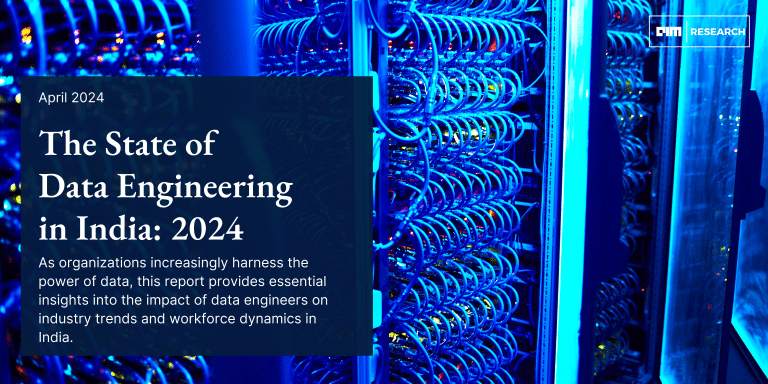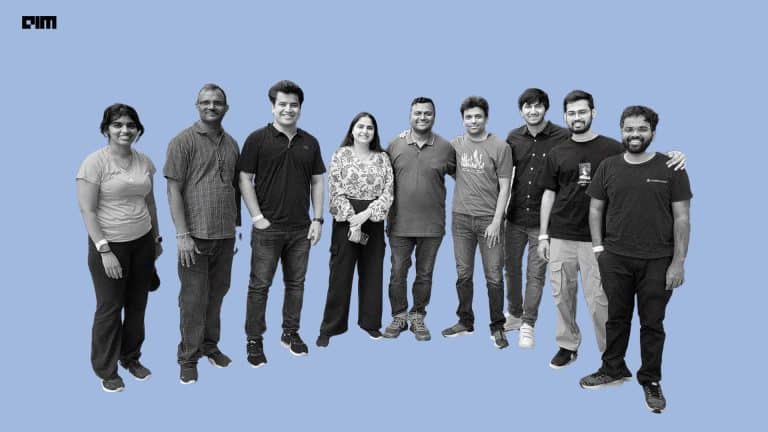|
Listen to this story
|
AI entering the field of data science is not new news. An increasing number of tools that employ AI are being deployed in analytics and data engineering, and we are observing a shift in data scientist roles. With AI automation coming into the picture, it will be interesting to see how data engineering will pan out.
From simplifying data to improving quality, here are some future use cases where AI automation can play a significant role in data engineering.
Big Query Management
By 2025, the data generated each day is expected to reach 463 exabytes globally. With this level of vast data comes the challenge of effective data management. The first step of sorting and querying is where you face the bottleneck. Integrating AI into databases can help improve efficiency. Automated query management, prioritising queries, and minimising manual database monitoring are some of the improvements that can boost efficiency.
Managing Data Quality
According to a research report by Gartner, poor data quality costs organizations an annual estimate of $12.9 million. From data integration issues to data duplication, there are multiple reasons that contribute to poor quality data. Not only does this result in financial consequences, but it also increases the difficulty in data ecosystems and can even lead to faulty decision-making. Mitch N., Founder and Managing Partner of bringga, believes that an automated AI-enabled data evaluation model can help perform root-cause analysis and identify data quality issues.
Master Data Management
In continuation of the above point, master data can be better managed through intelligent match-merge algorithms that can be AI-powered. It can reduce uncertainties by accurately matching and merging data, thereby improving the overall quality of data. The manual matching and merging of datasets, which are error-prone, are avoided. With intelligent deduplication, further refinement of data is achieved.
Intelligent Search Capability
Intelligent search is a type of search that incorporates technologies such as natural language processing and machine learning to interpret a user’s query. By analysing a user’s query, the search engine can figure out what type of information the user is looking for and return accurate and relevant search results. In data science, such a tool can help users get quicker output. A user’s question can be converted into a SQL statement and sent to the connected data store to retrieve appropriate results.
Automated Mapping of Metadata
Metadata helps manage and use data effectively by classifying and organising data. It describes various aspects of the data such as structure, format, quality, etc., thereby providing a way to classify and organise data to ensure that it is used appropriately. With the implementation of AI, automatic metadata tagging can be implemented, which not only saves time but eliminates errors. With automated mapping of business and technical metadata, the relationship between different data elements can be better understood, which translates to better usage of data within the organisation.
Code Generation
The future of data science will increasingly shift towards an automated way of code generation. There are already tools that help with code generation, and such tools will see increasing adoption. For instance, ProbeAI, known as the ‘AI Copilot for Data Analysts,’ performs tasks such as auto-generation of complex SQL codes, optimising and fixing SQL codes too. You even have the integration of chatbots to guide with code generation – CopilotX.
Pipeline Management
Data pipeline, an integral part of modern data management and analytics systems, where data is collected, transformed and stored in data lakes or data warehouses, is prone to multiple bottlenecks owing to the nature of the data. With AI automation, performance and efficiency of data pipelines can be improved. Workload optimisation recommendations can help with better resource allocation and optimise data processing pipelines. Workload monitoring and predictions is another area where AI can support. Through intelligent workload analysis, predictive modelling, and anomaly detection, any errors can be immediately addressed and performance can be improved.



















































































